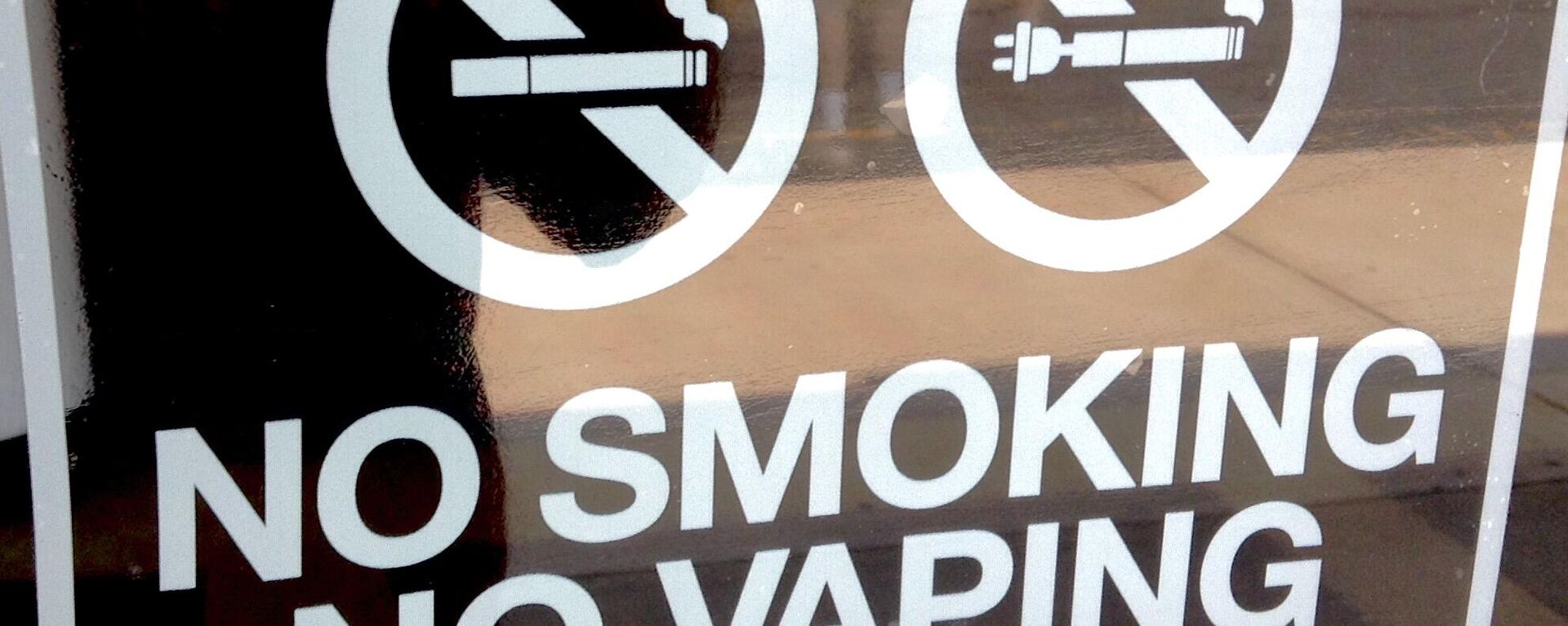https://en.sputniknews.africa/20240124/emergency-almost-60-of-youth-in-sierra-leone-use-drug-often-mixed-with-human-bones-doctor-says-1064767028.html
'Emergency:' Almost 60% of Youth in Sierra Leone Use Drug Often Mixed With Human Bones, Doctor Says
'Emergency:' Almost 60% of Youth in Sierra Leone Use Drug Often Mixed With Human Bones, Doctor Says
Sputnik Africa
In Sierra Leone, human bones are dug from the graves in local cemeteries to add them to the drug "Kush." To shed light on the adverse effects of the drug and... 24.01.2024, Sputnik Africa
2024-01-24T18:17+0100
2024-01-24T18:17+0100
2024-04-06T13:06+0200
sierra leone
afghanistan
asia
sub-saharan africa
drugs
west africa
health
healthcare
https://cdn1.img.sputniknews.africa/img/07e8/01/18/1064769351_0:257:2730:1793_1920x0_80_0_0_057f1572839220b4341a3de75b83fe10.jpg
Nearly 60% of the youth population in Sierra Leone is bingeing on Kush, a drug that is often mixed with human bones dug up from cemeteries, a doctor and the head of Health Focus Arena, Sierra Leone's community-based organization, Davida Sesay told Sputnik Africa, calling the situation a "national emergency."Explaining the effect of the drug, Sesay noted that it makes people "behave irrationally" and "go crazy."Elaborating on the problem, the medic highlighted that the drug is "trending" and is spreading without any predilection for age, gender or education.She also explained that Kush is a mixture of various chemicals and human bones, which are added to make it "more potent."Commenting on the adverse effect of the substance on human health, Sesay said that as a doctor she has seen a lot of cases of leg ulcers associated with Kush use.Sputnik Africa also talked to a medical student from Sierra Leone, studying in the Russian RUDN University Ernest Claude Farma, who is researching ways to combat the problem.Farma elaborated the destructive effect of the drug, which gives, according to him, "a sense of not belonging" and makes an individual to "lose interest" in real life.He went on to say that the place of origin of Kush is South Asia.'Sensitization Needs to Be Done'Speaking about the measures that need to be taken in order to tackle the drug problem, Farma stressed that it is necessary to educate the public about the negative consequences of using Kush and to "involve school students [...] in these campaigns."Farma added that the community, along with the government, "has a greater role to play" to address the problem.For her part, Sesay stressed the importance of identifying those involved in the Kush import.She also noted that not only the authorities should deal with the Kush problem, but citizens themselves should actively take part in the process.
https://en.sputniknews.africa/20231224/consuming-poison-kenyan-senator-sounds-alarm-as-illicit-alcohol-surges-1064273961.html
https://en.sputniknews.africa/20230813/smoking-gun-vapes-contain-toxins-carcinogens-and-possibly-polonium-study-says-1061302617.html
sierra leone
afghanistan
asia
west africa
Sputnik Africa
feedback@sputniknews.com
+74956456601
MIA „Rossiya Segodnya“
2024
Rasina Musallimova
https://cdn1.img.sputniknews.africa/img/07e7/0a/17/1063019139_0:0:646:646_100x100_80_0_0_348c74b69cf86748a53875f8148a2f85.jpg
Rasina Musallimova
https://cdn1.img.sputniknews.africa/img/07e7/0a/17/1063019139_0:0:646:646_100x100_80_0_0_348c74b69cf86748a53875f8148a2f85.jpg
News
en_EN
Sputnik Africa
feedback@sputniknews.com
+74956456601
MIA „Rossiya Segodnya“
Sputnik Africa
feedback@sputniknews.com
+74956456601
MIA „Rossiya Segodnya“
Rasina Musallimova
https://cdn1.img.sputniknews.africa/img/07e7/0a/17/1063019139_0:0:646:646_100x100_80_0_0_348c74b69cf86748a53875f8148a2f85.jpg
sierra leone, afghanistan, asia, drugs, west africa, health, healthcare
sierra leone, afghanistan, asia, drugs, west africa, health, healthcare
'Emergency:' Almost 60% of Youth in Sierra Leone Use Drug Often Mixed With Human Bones, Doctor Says
18:17 24.01.2024 (Updated: 13:06 06.04.2024) In Sierra Leone, human bones are dug from the graves in local cemeteries to add them to the drug "Kush." To shed light on the adverse effects of the drug and how to tackle the problem, Sputnik Africa spoke to a Sierra Leonean doctor and medical student.
Nearly 60% of the youth population in Sierra Leone is bingeing on Kush, a drug that is often mixed with
human bones dug up from cemeteries,
a doctor and the head of Health Focus Arena, Sierra Leone's community-based organization, Davida Sesay told
Sputnik Africa, calling the situation a "national emergency."
"A lot of symposiums have been held, it's a national emergency because the Ministry of Health currently in our country, we have other people, organizations, other health care bodies coming together to see how, we can be able to manage the situation in the country because almost 60% of the youth population are now binging in Kush," the doctor revealed.
Explaining the effect of the drug, Sesay noted that it makes people "behave irrationally" and "go crazy."
"[It] has that effect of giving you the euphoric feeling, makes you sleep a lot, basically, you go crazy. You're not yourself, you do not behave, or you behave irrationally. You're sleeping in the streets. If someone needs you, you're not even aware," she underlined.
Elaborating on the problem, the medic highlighted that the drug is "trending" and is spreading without any
predilection for age, gender or education.
"The saddest part of it is it's not even about literacy anymore, it's not even about the people who go to school, those who are educated or those who are only educated. You see young boys in school, in senior secondary school taking Kush. You see people uneducated taking Kush, you see males as well as females taking Kush so it's really trending," Sesay said.
She also explained that Kush is a mixture of various chemicals and human bones, which are added to make it "more potent."
"Human bones, dead humans like most corpses, the bones of a corpse and you have what we call formalin, that is a chemical that is used in preserving dead bodies, also being added to the stuff," the doctor revealed.
Commenting on the
adverse effect of the substance on human health, Sesay said that as a doctor she has seen a lot of cases of leg ulcers associated with Kush use.
"You have a lot of these people coming down with leg ulcers, very bad labels. At the end of the day, they have sepsis and they die. Most times they also have kidney problems because the metabolism of such drugs, the liver and the kidney, are responsible for metabolism, especially the liver, but most times they come with kidney pathologies," she clarified.
Sputnik Africa also talked to a medical student from Sierra Leone, studying in the Russian RUDN University Ernest Claude Farma, who is researching ways to combat the problem.
Farma elaborated the destructive effect of the drug, which gives, according to him, "a sense of not belonging" and makes an individual to "lose interest" in real life.
"Once you start smoking it, you don't feel any sense of belonging anymore. You just feel less of yourself, you lose interest in usual activity, you don't want games. All you want to do is just take money and buy Kush to smoke," the student noted.
He went on to say that the place of origin of Kush is South Asia.
"Kush is this specific type of cannabis that originated from the Hindu Kush mountain located near the border of Afghanistan based on my studies, between the border of Afghanistan, India and Pakistan," he explained, adding: "It is 100 times more deadly than the natural marijuana, that is jamba in my local dialect."
'Sensitization Needs to Be Done'
Speaking about the measures that need to be taken in order to tackle the drug problem, Farma stressed that it is necessary to educate the public about the negative consequences of using Kush and to "involve school students [...] in these campaigns."
"Sensitization needs to be done. [...] The problem we're having back home is the wrong information, and we don't have the resources like to embark on all off. [...] What I strongly recommend is they should actually involve school students, involve them in these campaigns, if it's like on holidays or even on weekends, take them to the provinces. People who can speak different languages go there and speak in the languages they will understand, so they help these people to stop the abuse of Kush and whatever drug they are taking," he pointed out.
Farma added that the community, along with the government, "has a greater role to play" to
address the problem.
"If you want to stop seeing your brother, your cousin, your uncle, your dad, your mom or your auntie to stop using psychoactive drug, you start the actions, you take the action yourself by actually bringing people together, mobilize themselves, so go to the communities, talk to people, talk to parents, the elderly. [...] Explain to them and tell them that if you take this Kush, then your future will be destroyed. Don't always look up what the government can do for you, what you can do for your community," the student underscored.
For her part, Sesay stressed the importance of identifying those involved in the Kush import.
"The one thing is to involve the government into this and to see, I mean to see the importers, who are all these people coming into the country with the drug? Who are they? [...] They should be identified," the medic said.
She also noted that not only the
authorities should deal with the Kush problem, but citizens themselves should actively take part in the process.
"It's not something that is isolated to a particular agency. Everyone should come on board and everyone should take everyone as their person," the doctor emphasized.




